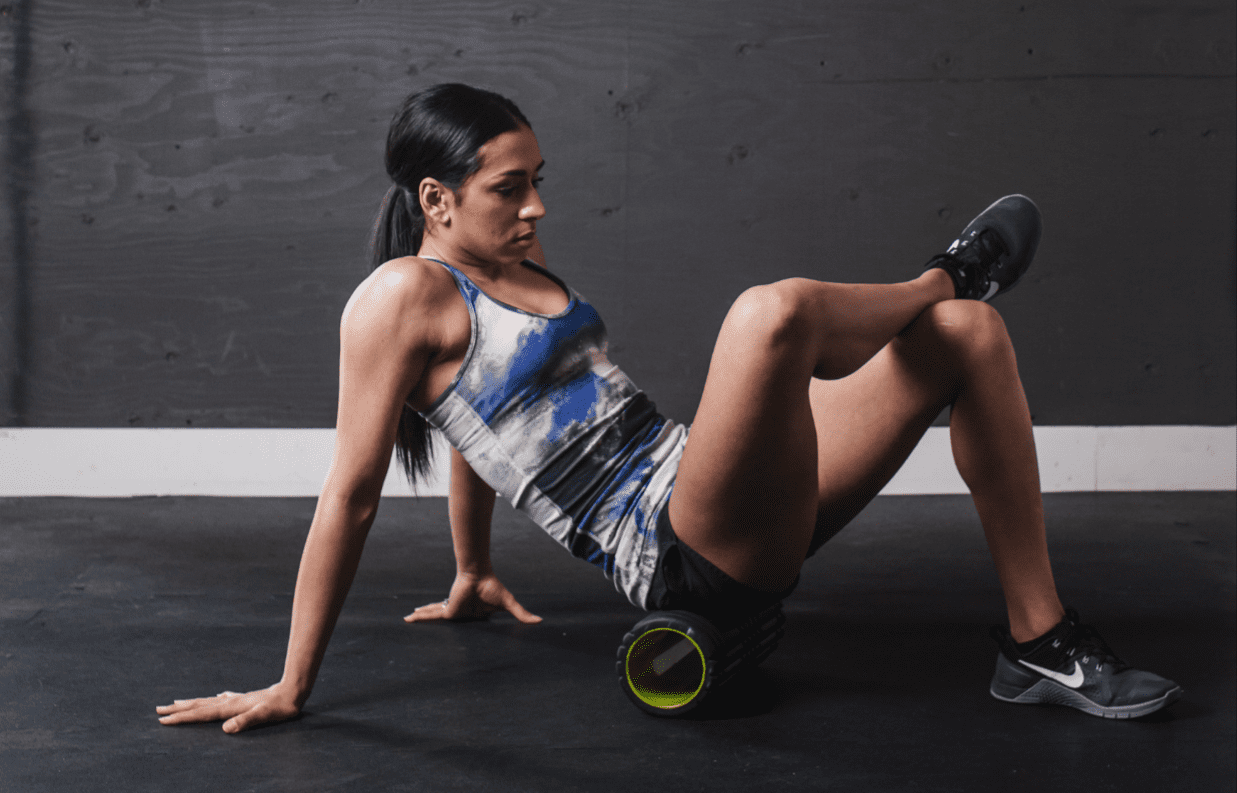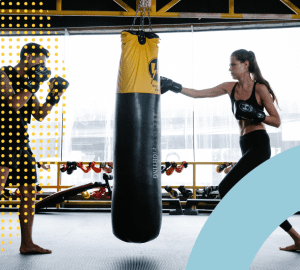So you’ve just got back from summer holidays and you’ve decided it’s time to get back into the gym. Your first workout is rough but you feel great afterwards. That is, until the next morning. You struggle to jump out of bed because you’re so sore. You ask yourself, did I do something wrong? Did I do too much? Here’s what you need to know about muscle soreness and few strategies to relieve it.
What is muscle soreness?
Muscle soreness is something most of us have experienced at least once in our lifetime.
Whether it was from a workout, playing a sport, working in your back yard or even from moving furniture around at home. Muscle soreness is a side effect of stress put on your muscles. It typically occurs after strenuous exercise, doing something your body isn’t accustomed to. During a typical workout, you stress your muscles resulting in the breakdown of muscle fibers. The next couple of days, your muscles repair themselves. They become larger and stronger, and become better prepared to handle the stress of your next workout.
Is muscle soreness good or bad?
In most cases it is a good sign, as it means that you are getting stronger and properly activating specific muscles. In other cases, severe pain, swelling and limited mobility during or immediately after a workout may require a visit to your local Physiotherapist. On a more serious note, muscles can break down too much leading to kidney damage and will require seeking immediate medical attention.
What is ‘DOMS’?
Now that you’ve been hitting the gym on a consistent basis for a couple of weeks, you decide to add a couple new exercises and increase the intensity of your workout. The next morning you wake up and surprisingly feel pretty good. Later on that day, you start to feel sore and the next two mornings you continue to feel worse. This extreme soreness that your experiencing is known as DOMS, delayed onset muscle soreness. DOMS is typically experienced 24-72 hours after a strenuous workout. It is a result of exercise that stresses the muscle tissue beyond what it is accustomed to. This can be done by simply adding a new exercise, modifying your intensity, adding in eccentric movements or training without sufficient rest breaks.
Can I still go to the gym or workout if I am too sore?
This is when you really need to listen to your body and be a bit more strategic in planning your next few training days. Depending on your body split, training another body part is a good idea. Maybe adding an extra recovery or rest day might be a good option as well. I think that the biggest thing that you need to consider is giving your muscles enough time to recover and prevent overtraining. Overtraining is more common than you think and can result in symptoms such as extreme fatigue, illness or even lead to injury.
How do I relieve or prevent muscle soreness?
If you want results, muscle soreness isn’t something that you can avoid completely. The best way to relieve muscle soreness is to stay active and perform some gentle exercises, like walking, swimming and stretching. Light exercises such as these will increase blood flow, allowing muscles to return to a normal resting sensation thus increasing the time of recovery. A proper warm up and cool down would also be encouraged to help reduce post exercise muscle soreness. Heat or ice can help provide some immediate but temporary relief. Heat increases blood flow and relaxes tight muscles while ice helps to decrease inflammation and swelling in the damaged muscles. Passive modalities such as compression, cryotherapy, hot/cold baths, electrostimulation, kinesiology taping etc. are becoming more and more popular especially in the athletic population but again provide temporary relief. I think the most important way to prevent muscle soreness is cross training. By varying your workout routine and cross training, your muscles become better conditioned. When muscles are better conditioned, workouts will yield less muscle tissue damage, less soreness, a faster recovery and less risk of injury.
By Brent Kastelic, BSKin, MScPT, One Performance and Rehab








